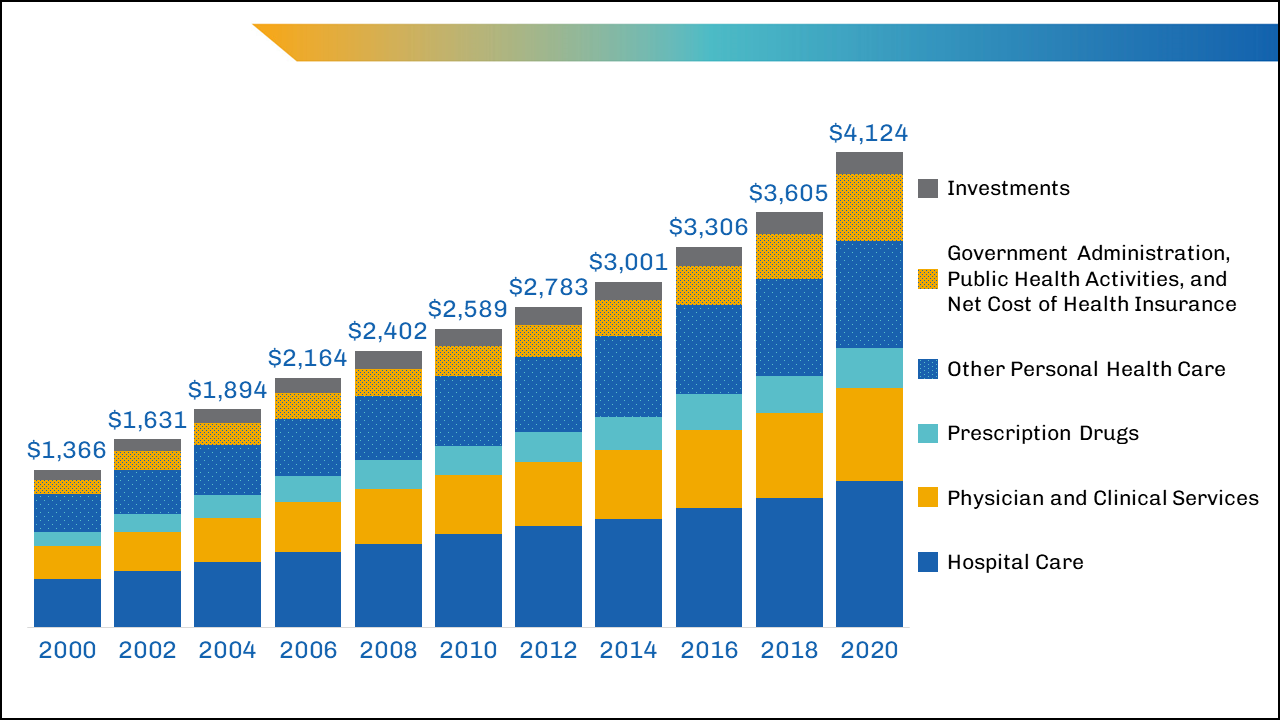Recognizing the Duty of Healthcare RCM in Enhancing Economic Performance and Patient Satisfaction
Navigating the intricacies of Medical care Income Cycle Administration (RCM) is important for achieving optimal financial performance while concurrently raising client complete satisfaction. As we check out the transformative capacity of RCM, concerns concerning its calculated execution and future improvements bid, appealing insights that might redefine industry criteria and patient experiences alike.

Key Elements of RCM
In the complex landscape of medical care, Profits Cycle Administration (RCM) is critical in making certain economic security and operational efficiency. A comprehensive RCM system incorporates several essential components, each playing a vital function in the seamless administration of a doctor's financial procedures. Client enrollment and eligibility confirmation are foundational actions, making sure that exact person details is caught and insurance coverage is validated prior to services are rendered. This reduces the danger of case rejections and increases the reimbursement procedure.

Fee capture is an additional crucial element, involving the exact recording of solutions offered to individuals. It guarantees that all billable solutions are made up, thereby making best use of earnings potential. Concurrently, medical coding translates patient encounters right into standardized codes, which are essential for payment and regulatory conformity.
Cases entry and administration comply with, entailing the preparation and submission of insurance claims to payers. This procedure calls for precise focus to information to reduce mistakes and avoid hold-ups. Denial management is a proactive strategy to deal with and settle refuted insurance claims, protecting earnings streams.
Lastly, settlement publishing and individual collections complete the cycle, making sure repayments are properly tape-recorded and impressive balances are sought. With each other, these components create a robust structure that sustains the functional and monetary health and wellness of health care organizations.
Influence On Financial Efficiency
Effective Revenue Cycle Monitoring (RCM) dramatically affects a healthcare company's monetary performance by optimizing capital and lowering earnings leak. RCM encompasses the comprehensive invoicing and collection processes that make sure doctor efficiently handle their monetary deals from person enrollment to final repayment. By streamlining these processes, companies can decrease refuted cases, accelerate payment cycles, and boost total economic health.
Economic efficiency is enhanced through precise management of invoicing treatments, which includes exact coding and prompt entry of cases. This minimizes the probability of insurance claim rejections and rejections, which can considerably prevent earnings flow otherwise attended to immediately. Additionally, incorporating innovative modern technology remedies promotes real-time tracking of claims and economic metrics, providing medical care managers with the devices essential to make enlightened critical decisions.

Enhancing Client Complete Satisfaction
While enhancing monetary performance is a vital purpose of Income Cycle Administration (RCM), it additionally plays a critical role in boosting individual fulfillment. Clients today demand openness, effectiveness, and precision in their health care communications. RCM systems enhance these processes, offering patients a seamless experience from consultation scheduling to settlement. By minimizing management burdens, RCM allows doctor to focus extra on individual treatment, which directly improves individual satisfaction.

RCM additionally improves person satisfaction with efficient communication. By preserving a detailed data source of client details, RCM assists in improved interaction in between clients and health care carriers, guaranteeing patients wikipedia reference feel informed and valued.
Approaches for Reliable RCM
Achieving effective Revenue Cycle Management (RCM) requires health care companies to apply a collection of calculated practices that make sure financial stability and operational performance. One essential approach is the adoption of technology-driven solutions, such as integrated software program systems that simplify invoicing procedures, decrease errors, and improve data precision. These systems allow real-time monitoring of monetary metrics, permitting punctual identification and correction of inefficiencies.
An additional strategy is the standardization of processes throughout the income cycle. Healthcare RCM. This involves creating consistent policies for individual registration, insurance verification, and declares processing. By ensuring that all team stick to these requirements, companies can quicken and lessen discrepancies repayment collections
Staff training and growth additionally play a critical duty in effective RCM. Well-trained workers can successfully browse complicated invoicing procedures and guidelines, decreasing denials and enhancing capital. Normal updates on plan changes and best practices assist keep a competent and experienced workforce.
Future Trends in RCM
As medical care organizations enhance their Income Cycle Monitoring (RCM) techniques with modern technology and standard procedures, focus is now transforming towards the future trends shaping this essential location. One significant fad is the assimilation of man-made intelligence (AI) and maker understanding to automate intricate jobs, such as cases refining and anticipating analytics. These innovations are expected to decrease errors, speed up transaction times, and supply data-driven understandings for far better decision-making.
Furthermore, the shift towards value-based treatment remains to affect RCM practices - Healthcare RCM. Healthcare service providers are expected to progressively concentrate on individual end results and complete satisfaction, demanding RCM systems that can suit brand-new reimbursement models. This change will require even more thorough data collection and analysis to successfully determine and report on efficiency metrics
Interoperability is another emerging top priority, as smooth information exchange between inconsonant systems becomes essential. Boosted interoperability will facilitate more accurate client information sharing, lowering administrative concerns and improving the patient experience.
Final Thought
Health Care Profits Cycle Monitoring (RCM) considerably influences both economic performance and individual contentment by optimizing invoicing procedures, ensuring precise coding, and making it possible for timely insurance claims submission. Effective RCM decreases income leak and speeds up money circulation, reducing insurance claim rejections and accelerating repayments.
Navigating the complexities of Medical care Profits Cycle Monitoring (RCM) is crucial for achieving ideal go to this site monetary performance while concurrently raising patient satisfaction. RCM encompasses the detailed invoicing and collection processes that make sure health care providers successfully handle their financial deals from client registration to last settlement. By minimizing administrative burdens, RCM permits medical care suppliers to concentrate much more on client treatment, which directly enhances patient fulfillment.
By maintaining a detailed data source of patient information, RCM facilitates enhanced communication in between people and health care carriers, making sure people feel educated and valued.Healthcare Income Cycle Monitoring (RCM) dramatically influences both monetary efficiency and person fulfillment by maximizing billing processes, guaranteeing exact coding, and making it possible for punctual claims entry.